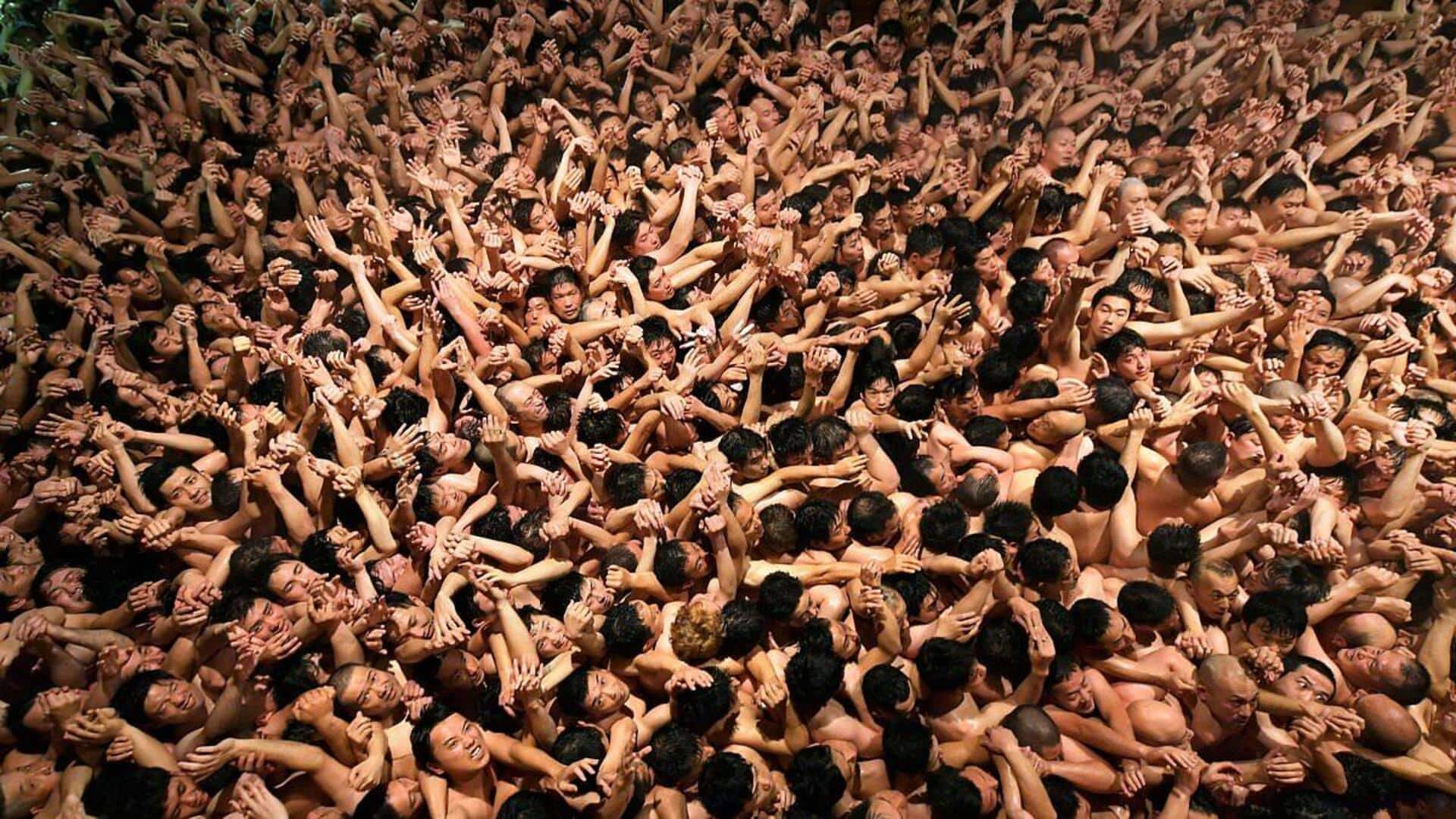
In a first, women to participate in Japan's 'naked festival'
What's the story
For the first time in its 1,250-year history, women in Japan have been granted permission to join the ancient Hadaka Matsuri, or "naked festival," held at a Shinto shrine in Inazawa. Traditionally held every February, thousands of men don minimal clothing to drive away evil spirits for the upcoming year. This year, around 40 women will be allowed to participate on February 22, albeit with some modifications.
New rules
Modifications made for women's participation
Unlike the male participants who wear only fundoshi (traditional loincloths), tabi socks, and hachimaki bandanas, the women will be fully clothed. They will make ritual offerings. The women will not take part in the festival's momiai climax, where men try to transfer their bad luck to a chosen man by touching him. Ayaka Suzuki, who campaigned for the unofficial ban on women to be lifted, said she had wanted to take part in the festival since she was a child.
Modern approach
Traditional festivals get more inclusive
As rural depopulation threatens traditional events dominated by local men, organizers of various Japanese festivals have been pressured to make them more inclusive. This month, women participated in the Katsube fire festival in Shiga prefecture for the first time in its 800-year history. But organisers of the Somin-sai - which also features minimal clothing - in the north-east town of Oshu announced last month that the event would be held for the final time this year.
Battle continues
Other sports battling sexism
While some view the revamped naked festival as progress for gender equality, traditional barriers persist in Japan. Women can't participate in professional sumo or step onto the dohyo ring. This regulation became contentious when women rushed to assist a mayor in 2018, sparking accusations of sexism. Referees repeatedly ordered them to leave the ring, highlighting ongoing challenges to gender inclusion in sumo and other traditional aspects of Japanese culture.